ALSO BY
ELENA FERRANTE
The Days of Abandonment
Troubling Love
The Lost Daughter
The Beach at Night
Frantumaglia: A Writer’s Journey
Incidental Inventions
MY BRILLIANT FRIEND
(The Neapolitan Quartet)
My Brilliant Friend
The Story of a New Name
Those Who Leave and Those Who Stay
The Story of the Lost Child
Elena Ferrante
THE LYING LIFE
OF ADULTS
Translated from the Italian
by Ann Goldstein
Europa Editions
214 West 29th Street
New York, N.Y. 10001
www.europaeditions.com
info@europaeditions.com
This book is a work of fiction. Any references to historical events,
real people, or real locales are used fictitiously.
Copyright © 2019 by Edizioni e/o
First Publication 2020 by Europa Editions
Translation by Ann Goldstein
Original title: La vita bugiarda degli adulti
Translation copyright © 2020 by Europa Editions
All rights reserved, including the right of reproduction
in whole or in part in any form.
Book design by Emanuele Ragnisco
www.mekkanografici.com
Cover photo © Dmitriy Bilous/Getty Images
ISBN 9781609455927
THE LYING LIFE
OF ADULTS
I
1.
Two years before leaving home my father said to my mother that I was very ugly. The sentence was uttered under his breath, in the apartment that my parents, newly married, had bought at the top of Via San Giacomo dei Capri, in Rione Alto. Everything—the spaces of Naples, the blue light of a frigid February, those words—remained fixed. But I slipped away, and am still slipping away, within these lines that are intended to give me a story, while in fact I am nothing, nothing of my own, nothing that has really begun or really been brought to completion: only a tangled knot, and nobody, not even the one who at this moment is writing, knows if it contains the right thread for a story or is merely a snarled confusion of suffering, without redemption.
2.
I loved my father very much; he was an unfailingly courteous man. A refined manner perfectly matched a body so slender that his clothes seemed a size too large, and this, to my eyes, gave him a look of inimitable elegance. His features were delicate, and nothing—deep-set eyes with long lashes, impeccably engineered nose, full lips—spoiled their harmony. With me he had an air of cheerfulness on every occasion, whatever his mood or mine, and he never shut himself in his study—he was always studying—unless he got at least a smile out of me. He especially liked my hair, but it’s hard to say, now, when he started praising it, maybe when I was two or three. Certainly, during my childhood we had conversations like this:
“What lovely hair, so fine, so shiny—will you give it to me?”
“No, it’s mine.”
“How about a little generosity.”
“If you want I can lend it to you.”
“Excellent, then I just won’t give it back to you.”
“You already have yours.”
“What I have I took from you.”
“That’s not true, you’re lying.”
“Check for yourself: yours was too pretty and I stole it.”
I would check but just to play along, I knew he would never steal it. And I laughed, I laughed a lot; I had much more fun with him than with my mother. He always wanted something of mine, my ear, my nose, my chin: they were so perfect, he said, he just couldn’t live without them. I loved that tone, which proved to me over and over again how indispensable I was to him.
Naturally, my father wasn’t like that with everyone. At times, when he was really caught up in something, he tended to frantically mash together sophisticated arguments and uncontrolled emotions. At other times, instead, he was curt, resorting to brief, extremely precise phrases, so dense that no one could refute them. These were two fathers very different from the one I loved, and I had started to discover their existence at the age of seven or eight, when I heard him arguing with the friends and acquaintances who on occasion came to our house for meetings that could become very heated, on issues I knew nothing about. In general, I stayed with my mother in the kitchen and paid little attention to the squabbling just a little ways off. But sometimes, when my mother was busy and closed herself in her room, I was left alone in the hall playing or reading—mostly reading, I would say, because my father read a lot, and my mother, too, and I loved being like them. I didn’t listen to the arguments, I broke off my game or my reading only when there was a sudden silence and those alien voices of my father’s arose. From then on he would dominate, and I waited for the meeting to end to find out if he had gone back to his usual self, the one with the gentle and affectionate tones.
The night he made that statement he had just learned that I wasn’t doing well in school. It was something new. I had always done well, since first grade, and only in the past two months had started doing badly. But it was very important to my parents that I be successful in school, and at the first poor grades my mother, especially, was alarmed.
“What’s going on?”
“I don’t know.”
“You have to study.”
“I do study.”
“And so?”
“Some things I remember and some I don’t.”
“Study until you remember everything.”
I studied until I was exhausted, but the results continued to be disappointing. That afternoon, in fact, my mother had gone to talk to the teachers and had returned very unhappy. She didn’t scold me, my parents never scolded me. She merely said: the mathematics teacher is the one who is most dissatisfied, but she says that if you want to you can do it. Then my mother went into the kitchen to make dinner, and meanwhile my father came home. All I could hear from my room was that she was giving him a summary of the teachers’ complaints, and I understood that she was bringing up as an excuse the changes of early adolescence. But he interrupted her, and in one of the tones that he never used with me—even giving in to dialect, which was completely banned in our house—let slip what he surely wouldn’t have wanted to come out of his mouth:
“Adolescence has nothing to do with it: she’s getting the face of Vittoria.”
I’m sure that if he’d known I could hear him he would never have used a tone so far removed from our usual playful ease. They both thought the door of my room was closed, I always closed it, and they didn’t realize that one of them had left it open. So it was that, at the age of twelve, I learned from my father’s voice, muffled by the effort to keep it low, that I was becoming like his sister, a woman in whom—I had heard him say as long as I could remember—ugliness and spite were combined to perfection.
Here someone might object: maybe you’re exaggerating, your father didn’t say, literally, Giovanna is ugly. It’s true, it wasn’t in his nature to utter such brutal words. But I was going through a period of feeling very fragile. I’d begun menstruating almost a year earlier, my breasts were all too visible and embarrassed me, I was afraid I smelled bad and was always washing, I went to bed lethargic and woke up lethargic. My only comfort at that time, my only certainty, was that he absolutely adored me, all of me. So that when he compared me to Aunt Vittoria it was worse than if he’d said: Giovanna used to be pretty, now she’s turned ugly. In my house the name Vittoria was like the name of a monstrous being who taints and infects anyone who touches her. I knew almost nothing about her. I had seen her only a few times, but—and this is the point—all I remembered about those occasions was revulsion and fear. Not the revulsion and fear that she in person could have provoked in me—I had no memory of that. What frightened me was my parents’ revulsion and fear. My father always talked about his sister obscurely, as if she practiced shameful rites that defiled her, defiling those around her. My mother never mentioned her, and in fact when she intervened in her husband’s outbursts tended to silence him, as if she were afraid that Vittoria, wherever she was, could hear them and would immediately come rushing up San Giacomo dei Capri, striding rapidly, although it was a long, steep street, and deliberately dragging behind her all the illnesses from the hospitals in our neighborhood; that she would fly into our apartment, on the sixth floor, smash the furniture, and, emitting drunken black flashes from her eyes, hit my mother if she so much as tried to protest.
Читать дальше

![Элена Ферранте - История о пропавшем ребенке [litres]](/books/32091/elena-ferrante-istoriya-o-propavshem-rebenke-litres-thumb.webp)
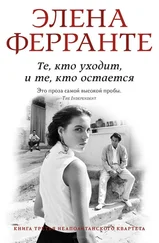
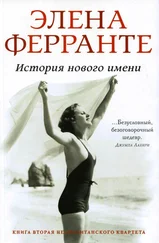
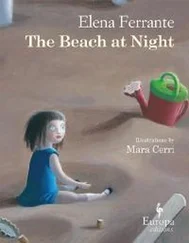
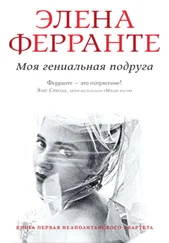
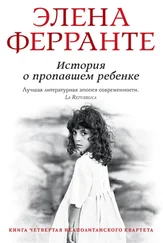
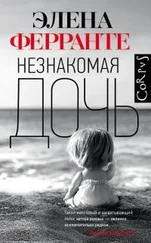
![Элена Ферранте - Дни одиночества [litres]](/books/404671/elena-ferrante-dni-odinochestva-litres-thumb.webp)



